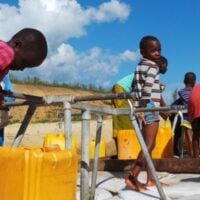Deadline: 30-Jan-2026
The Nagao Natural Environment Foundation is inviting applications for its NEF Commemorative Grant Fund Young Scientists Programme to help young scientists in the Asia-Pacific developing countries grow up as world-class scientists in the fields of conservation of wildlife and ecosystem in the region.
The research project is expected to contribute to nature conservation of the home country of the project scientist (PS), focusing on living organisms, especially wildlife and ecosystem. This includes studies from standpoints such as biology, especially ecology, taxonomy, and distribution and current status of wild animal and plant, biodiversity (species, genetic, and ecosystem diversity), threatened species, alien species, and restoration of ecosystem and/or relationships between nature and humans (e.g., ecosystem services and sustainable use of biological resources).
The duration of the research is basically two years, but may be extended to a maximum of three years for a PS who is a student in Japan. The maximum grant size ranges from 1,500,000 to 2,500,000 Japanese yen per project, depending on the PS’s qualification. Eligible expenses include travel for fieldwork, expendables for surveys and analyses, minimum wages for necessary labor, reference materials, and costs for public awareness activities. Ineligible expenses include personal expenses for the PS or PC, versatile equipment, and administrative overheads of the institution.
The program targets young scientists under 40 years old who are nationals of specific Asia-Pacific countries, including Bangladesh, Bhutan, Cambodia, Fiji, Indonesia, Kiribati, Lao PDR, Malaysia, Maldives, Marshall Islands, Micronesia (Federal of), Mongolia, Myanmar, Nauru, Nepal, Palau, Papua New Guinea, the Philippines, Samoa, Solomon Islands, Sri Lanka, Thailand, Timor-Leste, Tonga, Tuvalu, Vanuatu, and Vietnam. The project should be implemented by a young researcher as a project scientist (PS), under the guidance of a project coordinator (PC). The PS must be a national of one of the target countries, under 40 years old, and either be a researcher with a PhD or at least three years of research experience, or a student enrolled in or a prospective applicant for a doctoral (PhD) course at a Japanese university. The PS must not be a recipient of an ongoing NEF research or publication project, or an applicant for any other NEF grant at the time of submission.
The project coordinator (PC) must be a main or co-supervisor for a PS who is a student in Japan. For a PS who is a researcher in an Asia-Pacific country, the PC is generally requested to have teaching and/or work experience in a Japanese university or research institution. The PC must support the PS throughout the project and maintain intimate contact with the CGF Management Committee (MC) and the NEF Secretariat.
The research project must be planned by the PS with advice from the PC, and the PS must implement it as the principal investigator. For researchers in the target countries, the project must be fieldwork-based and approved by the head of the PS’s department. For students in Japan, the fieldwork must be related to their doctoral dissertation and conducted in their home country or in Japan. Research proposals that focus on agricultural, forestry, or fisheries industries, are difficult for an individual to handle, are already funded by other organizations, or are already mostly completed, will be declined.
To apply, the PS is requested to download the “CGF Application Form for Project Scientist (PS)” from the website. The PC is also requested to download the “CGF Form for Project Coordinator (PC)” from the same website. The PS must fill in all items of their application form in cooperation with the PC. The PC is requested to fill in their form and send it to the PS. The PS must then submit a set of the completed forms as a PDF file to the NEF Secretariat via e-mail. The application deadlines are twice a year: July 31, 2025 and January 30, 2026.
The CGF Management Committee (MC), which includes board members of the NEF and external experts, has all responsibilities for the pass-or-fail decision of applications. The selection process considers factors such as relevance and importance to nature conservation, originality and quality of the research, feasibility of the research design and plan, rationality and effectiveness of the budget, the PS’s research skills and experience, the PS’s sufficient involvement in the proposed research, the PC’s teach and/or research experience, and the efficacy of cooperation between the PS and PC. The selection results will be announced within three months after each deadline via email and/or a postal letter to each PS and PC. The names and titles of selected projects will also be announced on the NEF website.
Recipient PSs, with collaboration with the PC, are required to send at a minimum three reports to the Secretariat: a brief report within three months, a progress report after each year, and a final report upon completion of the research project. The first year’s budget will be transferred to the PS and PC, with the remaining funds transferred after a satisfactory review of the progress report.
For more information, visit NEF.








































